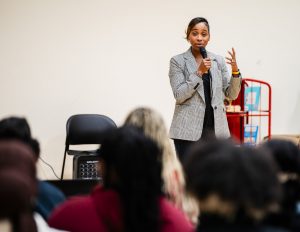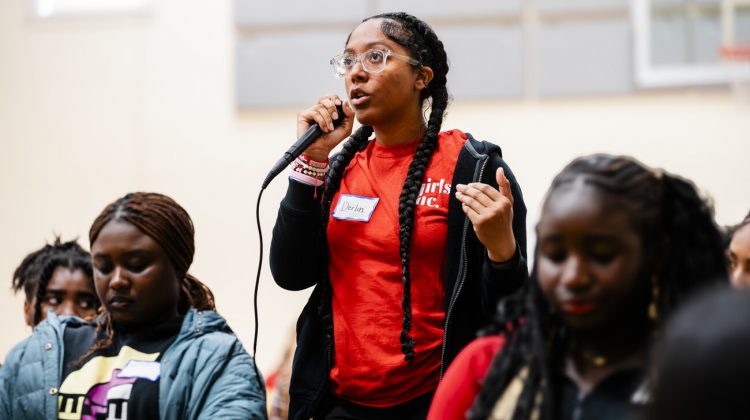LYNN — In an effort to hear more from and engage with young people across the Commonwealth, the Office of the Attorney General has been holding youth listening sessions across Massachusetts. On Thursday, the office stopped by Girls Inc. to hear from the North Shore’s youth.
Attorney General Andrea Campbell spoke to the roughly 25 teenagers in attendance, thanking them for their participation in the event, despite it being a week of school vacation.
The Office of the Attorney General first gave attendees a brief explanation of what the office does and how young people can interact and connect with them. Then, Campbell spoke to the teenagers, letting them know that she wants to hear from them.


“If anything, the narrative out there is that young people don’t care. You don’t vote if you’re of age, and you’re not civically engaged… you just don’t care. And we push back on that narrative everyday,” Campbell said.
She mentioned that the office is currently planning on implementing a youth advisory council, and said that the listening sessions are the first step in that plan.
“These listening sessions have allowed us to be in the community with you, to take notes on what you care about, to take all that information, not just do away with it, but to really take notes to heart,” Campbell said.
Following Campbell’s opening remarks, the attendees split into five private groups, where they discussed their feelings and opinions regarding the issues that mean the most to them to members of the Office of the Attorney General.
They reconvened in the Girls Inc. gymnasium following the group discussions for a quick recap.
“We talked about how substances are really accessible to youth and how schools lack education, like showing kids knowledge on what substances can do to the body and how harmful they can be, and how schools should actually teach students how to cope in healthy ways instead of using substances,” attendee Derlin Salvador said. “Schools just automatically punish students for using substances not knowing why, when the main reason is because they use it as a coping mechanism.”
Each group spokesperson touched on similar issues, including the lack of mental health resources they feel are available to high schoolers, the lack of information and resources regarding addiction issues, and officials resorting to punishment immediately instead of other ways to address the problem.

